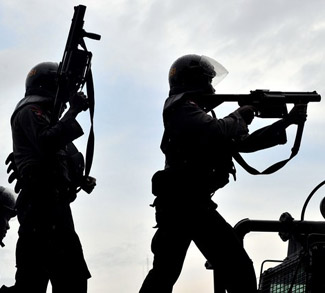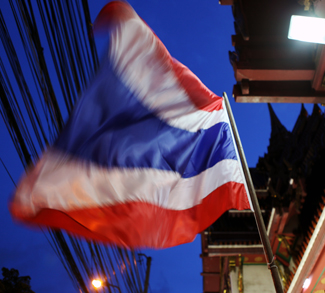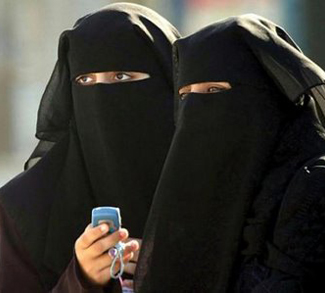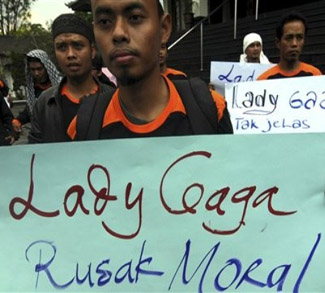It has been almost 15 years since Suharto stepped down as President of Indonesia. The country has since boasted unprecedented economic growth, maturing democratic values and a steady rise in living standards. But this story of democratic success is often obscured by two elements of Suharto’s legacy that Jakarta is still struggling to cope with: fragile political institutions and military interference in the political process, says Adriano Marchese of Geopoliticalmonitor.com.
For most of Suharto’s rule, political unrest was extremely rare. Power was monopolized by a small cadre of elites. It wasn’t until 1998, when Suharto was forced to resign, that long-suppressed political forces were suddenly unleashed. Since then, previously marginalized groups of radical Islamists have won seats in parliament and exerted pressure on decision-making in the political process. They have made their way into the ranks of governments and some even hold down key cabinet positions. Moderate presidents have had to toe a fine line between national interests and coalition pressures from these newly emergent political groups. Current President Yudhoyono is no exception; he has also had to compromise on religious matters in order to keep the orthodox Islamists in his coalition on board lest he risk losing power.
Suharto’s legacy of corruption and cronyism is still undermining real social development at the very foundation of Indonesian society. During Suharto’s reign, positions of power and wealth were distributed among his family and loyal friends, many of which still hold titles and control major industries in the country. The patrons of Suharto’s regime have been the main beneficiaries of Indonesia’s economic boom, which has had the effect of exacerbating an already-wide wealth gap in Indonesian society.
The crux of Indonesian democracy lies in its presidential constitution. It was adopted as a temporary document in 1945 and was subsequently used as a legal rationale for authoritative rule by Suharto and his predecessor. Until recently, amendments were restricted in order to keep the power in the hands of a select few. While it has since been modified, it still does not form the strong backbone that is needed for democracy to blossom in Indonesia. The document now makes provisions for balance of power in the branches of government as well as checks and balances on the president, but it has been weakly implemented. For example, the judicial system, which has the ability to define and enforce legislation, is beholden to powerful interests. Justice and equality are often overlooked in cases involving individuals with high social standing and thus political influence.
The constitution shows further weakness in its enigmatic wording. It protects the freedom of religion in the country while paradoxically implying that it is illegal to be an atheist.
The proliferation of non-political Islamist extremists groups has caused religiously-fueled violence to spike throughout Indonesia; perhaps a by-product of a system that continues to cater to Islamist groups often at the expense of minority rights. The early 2000s saw a rise in violence and criminal acts against minority groups; embassies, bars and restaurants and places of worship have all been targets of bombings and other attacks. Though the government has been successful in putting a stop to large-scale acts of violence, it has largely overlooked the less-publicized crimes that continue to occur across the country.
The constitution lacks a clear definition of the relationship between state and citizen as well as the executive and legislative branch of government. These ambiguous articles were left unaltered throughout Suharto’s rule to entrench his control over the country. Since his rise to power, the military has been an influential actor in Indonesian politics. It has come to be the primary symbol of the country’s struggle for independence against the Dutch. The military continues to be a potent political force in the country to this day, despite losing a substantial amount of public support since the Suharto era. For the most part, its continued involvement in politics is perpetuated by fear-mongering military officials.
Suharto strengthened the military throughout his term, moulding it into a political tool and national police force. Modern day proponents of a strong military argue that Indonesia needs to expand its influence in international affairs, primarily as a way to increase its bargaining power in the region. Internal threats of terrorism have eased since 1998 but the call for greater regional autonomy has been popular. Military elites claim to be the glue that holds the centralized state together, yet secessionist movements continue to make gains throughout the archipelago, particularly within regions that are rich in natural resources. Rather than opening up the debate to democratic discussion on regional autonomy, the military insists on upholding the country’s unity through an armed presence.
Indonesia is still a country in the midst of a democratic experiment. There is widespread enthusiasm for democracy and it seems likely that more democratization is on the horizon. Nevertheless, the remnants of Suharto’s legacy are still corroding institutions of government and the core of the nation’s economy. Just how these remnants are dealt with will be critical in determining the direction of Indonesia’s future.




